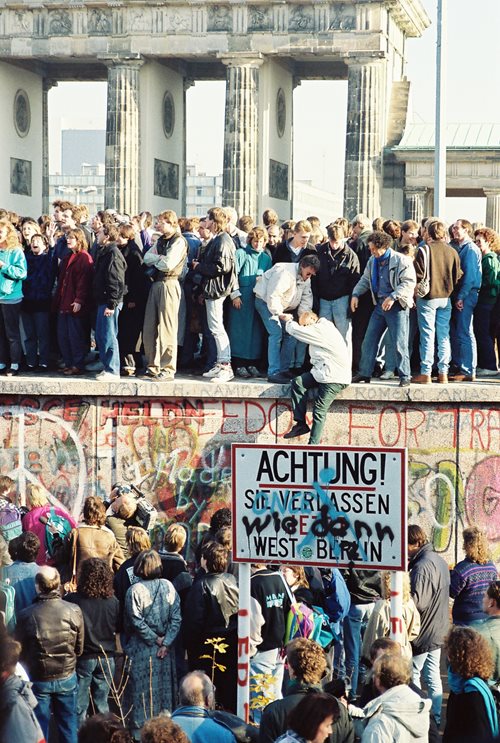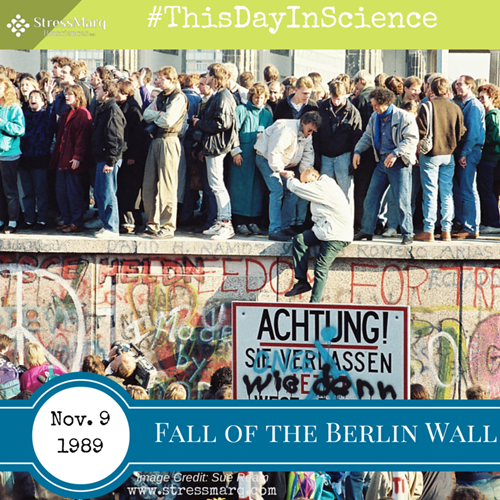This Day In Science Nov. 9, 1989 – Fall of the Berlin Wall
The Berlin Wall fell on November 9, 1989. After more than 28 years of existence, the greatest symbol of the Cold War conflict gave way. It was a moving moment for people around the world. For people in Germany, it remains unforgettable to this day.
Every country has its events that people will never forget. Whether they are good events, or less than positive.
For South Africans, the day on which Nelson Mandela was elected as the first black president of his country after 27 years of political imprisonment is a day they will never forget. In the United States, almost everyone can remember exactly what they were doing on the day that John F. Kennedy was assassinated. And in Great Britain, everyone to this day has their own interpretation of Lady Diana’s fatal accident.
For people in Germany, the 9th of November 1989 is an unforgettable day. On this day the Berlin Wall came crashing down after more than 28 years. This bulwark of terror, on which many people had lost their lives, was suddenly overcome.
The images of this historically significant date have remained in the minds and hearts of all of us: People, who had never known each other, embracing. Border guards, who had actually had the order to shoot, lowered their weapons to allow the flood of people to run freely. Thousands celebrated in the streets. These images have burned themselves into our memories and continue till today, to give us hope that miracles really can happen and that the “fight” for good should never be relinquished.

Image Credit: Sue Ream
People atop the Berlin Wall near the Brandenburg Gate on 09 November 1989. The text on the sign “Achtung! Sie verlassen jetzt West-Berlin” (“Notice! You are now leaving West Berlin”) has been modified with an additional text “Wie denn?” (“How?”).
For me, this day remains in my memory because of the tears flowing down my father’s cheeks which wouldn’t stop. I had basically never seen my father cry. Our whole family stood in front of the television and we children, who didn’t really understand what was happening, knew nevertheless that something huge had happened on this day. Whenever I see pictures from that time, I am moved and my eyes become moist.
25 years ago already! Meanwhile, Germany has long been united, and East and West have continued to grow closer together.
At Biomol, we had our start in Hamburg one year before the fall of the wall. Biomol was a three-man operation at first. Now we have 20 employees. And they come from the west as well as from the former GDR. One hardly notices the difference. Only the dialect of one colleague or the other gives a clue as to a geographical origin.
Biomol was the distributor for StressMarq products in Germany. We represent a whole series of primarily American companies. With an assortment of more than 240,000 research reagents, we supply scientists from many different disciplines throughout Germany.
Many of the employees at Biomol have a scientific background. Especially in the past few days, we have been asking ourselves to what extent science in Germany was changed because of the fall of the Berlin Wall. We don’t want to presume to have an answer to this question. The topic is too complex and political. We would rather just stay with our personal impressions from the 9th of November 1989.
Perhaps it’s also interesting to know that it was naturally wonderful to finally be able to visit relatives without restrictions, and that people in the East suddenly had freedom like they had never dared to hope for before.
Our mission statement, which has guided and motivated us for many years is: You have the vision, we have the substance. And that is more relevant today than ever. That visions can be made into reality is something we all have known at Biomol – certainly since the fall of the Berlin Wall.


Leave a Reply